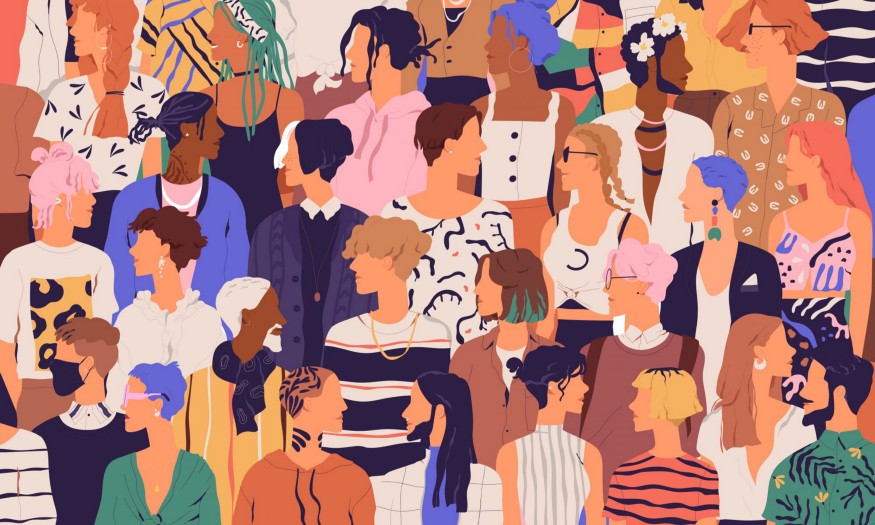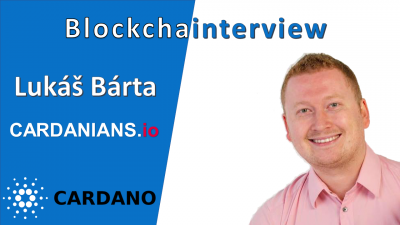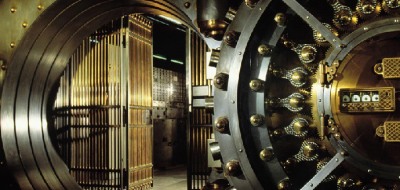How to define the cryptocurrency community?
Bitcoin represents an attempt to create non-state global money. Anyone who agrees to it owns bitcoins. Cardano and some other projects take the original idea further and want to create an alternative financial system that is not dependent on governments. It must be acknowledged that there are many speculators in the space who are only looking for value growth and don’t care about the ideals or message of cryptocurrencies. However, anyone who holds a cryptocurrency is giving some signal to others, including governments, that they know about the blockchain industry and share at least some of the ideals that are attached to it.
If an alternative independent financial world is to emerge, it necessarily competes with governments that need national fiat currencies to function. There is a direct link between fiat currencies and governments, and it is hard to imagine governments giving up their national currencies. The blockchain industry is a kind of unwanted competition that has grown up fast and is here to stay. Who exactly are the people who share the ideals of decentralization?
These people cluster around blockchain networks, which are inherently ubiquitous. Cryptocurrencies know no national boundaries and fans of specific projects are literally all over the world. Your neighbor may not know about Cardano, but you may be chatting about it on social media with someone from the other side of the planet. Today it is in the order of millions to tens of millions of people, which is more than in a small European country.
Some people say that cryptocurrencies are a new religion born around technology. Money only works on the basis of trust. Anyone who uses fiat currency has to trust them, just like they trust the country they live in. People know the rules associated with the use of currency and the rules of the state at the same time. The use of fiat currencies is controlled by the state. If someone voluntarily decides to use cryptocurrencies instead of fiat currencies, it can be interpreted as a loss of trust or a kind of revolt against the state.
In many Western countries, the laws and rules of the state are separate from religion. States have created new social contracts that in many ways have replaced religion. Religion is tolerated, but usually does not interfere with the governance of the state, and certainly not with fiscal or monetary policy. We, therefore, do not think that religion is the best term for cryptocurrency communities, although it must be admitted that some commonalities can be observed.
In democratic countries, different political parties fight for power. They present their political program to the citizens and the people decide in elections what direction the state should take. Governments have a direct influence on the stability of the country, and therefore also on the stability of fiat currencies. European countries, for example, have had to decide whether to adopt the euro as their new European currency.
Can we consider cryptocurrency fans as new political parties? We see two reasons why not.
First, these parties are global and do not fight with specific political parties in any particular country. On the other hand, if a significant number of citizens of a particular country decided to switch to cryptocurrencies and the country in question tolerated it, it would be a kind of competition for the political elites.
Secondly, every political party has its leaders. Blockchain networks are decentralized and have no leaders. A decentralized network is maintained by a group of independent people. However, each project has its prominent face. In the case of Bitcoin, it is Michael Saylor, Jack Dorsey, Adam Back, and others. For the Cardano project, it is Charles Hoskinson. For the Ethereum project, the prominent face is Vitalik Buterin. We mustn’t forget the teams that are responsible for editing the source code and have to interact with the community from time to time. We also have major pool operators, miners, influencers, and others. There are usually multiple prominent figures in each community who together form significant currents of thought, but also counter-currents. Even if these prominent personalities do not influence the functioning of the network and cannot, for example, switch it off, they form natural leaders for the community.
Some influencers may play a fake game with the community just as some political parties play it with citizens. For example, representatives of VC funds try to promote a project in which they themselves have invested at the expense of another project. To promote their investment they are able to lie openly about their competitors. This behavior can be observed frequently. Haseeb Qureshi may tell you that Cardano only has religion and not technology. Mark Cuban will claim that Dogecoin has more applications than Cardano. Just as in politics, in the world of cryptocurrencies we see a lot of lying and trying to swindle others out of money.
In our opinion, cryptocurrency communities are something between a religion and a political party. They are people who must first and foremost believe in the technology, i.e. a particular project. Next, they need to understand the mission of the project, see it as real, and share the same ideals as other members of the community. Cryptocurrency communities are based on belief in a project, social belonging, and a particular line of thinking or views on monetary policy. However, there is one thing that complicates this view.
With religion and political parties, we usually choose only one. In the world of technology, this is not necessary and an individual can choose multiple protocols to use. Some members of the community try to force others to make a choice of only one project and consider the others as competition. The question is whether the competitive struggle will prevail and the individual communities will compete with each other like political parties, or whether the technical aspect will prevail and people will use individual projects in a similar way as they use Meta, Twitter, Amazon, or Google. That is to say, they will mainly deal with functionality and not ideology.
A pragmatic approach to the use of individual projects does not necessarily mean that the desire to decentralize our world more is weakened. It would still be the case that the principles of decentralization need to be introduced into the current political and financial environment, which has little transparency, politicians are not directly accountable for their actions and the whole system is prone to corruption.
With higher adoption, communities will be more transformed and further changed. Communities are beginning to vote on important issues, more akin to a political party than a religious movement. In Bitcoin, major protocol changes are being voted on. In the Cardano ecosystem, people are voting in Catalyst to fund projects to be implemented. The first DAO experiments are underway. While there is an emphasis on the independence of individual members, they all need to communicate with each other and occasionally come to a decision.
We can imagine that in the distant future there may be project leaders or spokespeople who will talk to politicians. Indeed, this is already happening today, with fans of individual cryptocurrencies talking to politicians and legislators. They usually lobby for their project or against another project. These people don’t necessarily have any mandate from the community and everything happens organically. Do you think communities will one day have elected or informal leaders, or would that somehow undermine the principles of decentralization? We don’t have a clear opinion on this ourselves.
It would be nice if all the cryptocurrency fans got together and formed one big strong group of people to speak out in unison. Insisting that this happens around one specific project is a form of centralization. It is already clear that this will never happen, and people reject it. Unfortunately, we don’t think that individual communities will stop competing with each other.
In any case, there is no point in looking for a precise definition of the cryptocurrency community. At the moment, it’s probably best to think of it as a group of people building technology together and sharing the same view on the future.
Cardano has sound technology
We said that communities come together around specific projects. This can be seen as a form of vote of confidence in a given project. What attracts people in the first place is the existing community. Then they have to be interested in technology, but not everyone is an IT expert. It is necessary to trust someone else, ideally independent experts.
An individual has almost no chance to understand the individual blockchain protocols in detail. Today, this is done by teams of experts who analyze individual projects and give their opinion. It is natural for people to go where a community already exists and is willing to openly discuss the details of a project. They can also rely on personal experience of using the network. They can set up a wallet, send coins, or try the DeFi service themselves.
If a project has a large community, it means that people believe in the technology, understand the mission of the project and share most of the views with the community. This definitely wouldn’t happen if Cardano didn’t have sound technology. Experts would point out the flaws. There would be network restarts, hacks, and many other problems. Cardano fans know how the team is building the technology and have accepted it. The community prefers security and decentralization, knowing that the team is working on scalability.
Choosing Cardano may be a pragmatic choice that does not necessarily have an ideological basis. On the other hand, it is the mission of the project that is attractive to many people.
Members of the Cardano community know well that Bitcoin is considered finished and will not evolve. We believe that the protocol needs to evolve and that a team of experts is needed to do so. Some people consider PoW to be the best consensus, yet we believe that PoS is just as secure as PoW. Some people believe that smart contracts or the ability to issue tokens are not important, but we believe that humanity can take advantage of this. The Cardano community knows that there is a roadmap and that once the current one is completed, a new one will be created. Technology has to keep evolving and this is not going to stop.
The roadmap and the team are extremely important because it guarantees success. Cardano will be different a year from now as several updates will be deployed. The same will happen every year. The technology will be improved so that the protocol will be more efficient and will be able to do more. This will result in higher adoption.
Let’s take an example. It is generally believed that the blockchain trilemma is an unsolvable problem, but some experts say it is solvable. The IOG team has a plan to significantly increase the scalability of the protocol without sacrificing decentralization and security. Ouroboros Leios PoS is another planned enhancement that the team has already started working on.
If you compare Cardano to another smart contract platform, at first glance it may seem that they are very similar. Only those who are able to look under the hood will tell you that this is not the case. However, it is not necessary to look under the hood. Just look at the team and how they deliver. Although the team can be criticized for some delays, they always deliver what they promise and no update so far has resulted in a fatal problem.
Community is extremely important for adoption. Companies only produce services that they can monetize. You can use Facebook, but you need to know that the company is misusing your personal data. Cryptocurrencies have the potential to change the basic functioning of our society. Cardano will allow us to create an ecosystem that is built on a foundation of transparency where we need it, but at the same time on a foundation of privacy rights where we want it. A third party can make a profit, but they must be completely transparent about how much and what it is specifically for. Third parties are abusing their position, and that has to change. Communities will one day choose what blockchain projects they want to see in institutions they trust. That would at least be the ideal direction of adoption.
The community is the first to try new things. The same community will demand changes in society as soon as it is sure that the technology is ready to be deployed where we need it. Current institutions are merely holding cryptocurrencies for now. It’s a new business for them, not a threat. But we need institutions to be more transparent and not abuse their position. That means they need to adopt the infrastructure, not the coins of individual projects. There is a fundamental difference.
Conclusion
Cardano has both things needed for adoption, sound technology, and a strong community. One cannot exist without the other. At least not in the beginning. Cryptocurrencies are here to be adopted from the bottom up. In the future, it will likely be the case that individual projects will be adopted from the top down. But that’s not a problem as long as the community is the one controlling the adoption.
It is possible that banks and institutions will one day adopt public blockchain networks. We don’t know what that will look like or when it will happen. Institutions will always adopt new technologies because they have no other choice. Imagine if banks still did not have the internet today. They certainly wouldn’t be around anymore. Blockchain will be ubiquitous in a few decades and no institution will be able to avoid it. Technologically, it’s really just a kind of a new trust layer on top of the internet.
We don’t think the argument that we only need one money is valid either. Each money has different properties. The biggest problem of the current cryptocurrencies is the high volatility that Cardano can deal with through stablecoins. Bitcoin can’t do that. There are also other aspects like durability, which will be higher for PoS networks than PoW. Then there is the cost of operating the network, which will also be more favorable for PoS networks. Even free money should compete with each other.
It’s a big unknown what role individual communities will play. Certainly, there will not be a single winner. It’s not happening now, so there’s not much likelihood that we’ll see it. We believe that people will be quite pragmatic and unemotional in choosing services that are reliable, secure, and useful to them. Cardano is being built to be that way and to remain that way for the next few decades. We believe it will find its users.

 The new digital economy is emerging on Cardano
The new digital economy is emerging on Cardano Interview: Lukáš Bárta | Cardanians.io | Charles Hoskinson is a visionary like Elon Musk
Interview: Lukáš Bárta | Cardanians.io | Charles Hoskinson is a visionary like Elon Musk Security budget of the Cardano project
Security budget of the Cardano project What does it mean for Cardano to be a platform?
What does it mean for Cardano to be a platform?